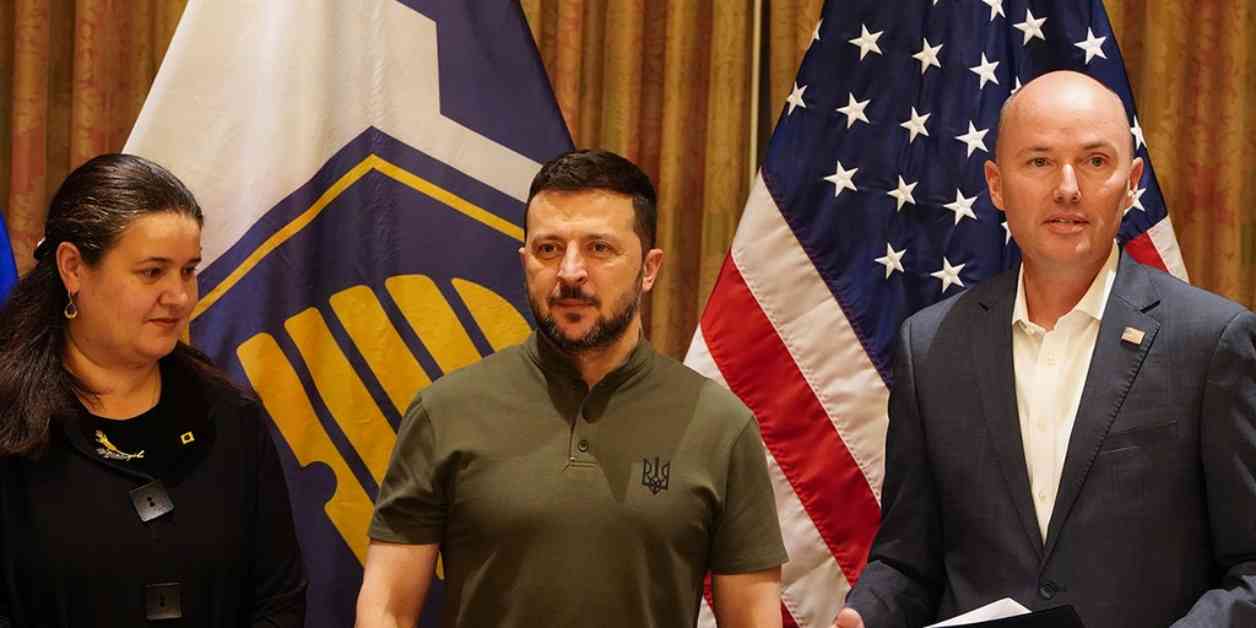Republicans and White House Defend Zelenskyy’s PA Visit as Non-Political
Ukrainian President Volodymyr Zelenskyy’s recent visit to a U.S. Army ammunition plant in Scranton, Pennsylvania has sparked controversy, with some Republicans accusing the event of being partisan in nature. Speaker Mike Johnson criticized the visit, labeling it as a “partisan campaign event designed to help Democrats.” However, both the White House and Pentagon officials have defended the visit, stating that it was at the request of Ukraine to express gratitude to American workers who have contributed to boosting ammunition production for Ukraine’s defense against Russia.
Context of the Visit
The visit by Zelenskyy was not intended to be a political rally, but rather a gesture of appreciation towards the workers who have played a crucial role in supporting Ukraine’s defense efforts. White House and Pentagon officials emphasized that the visit was arranged by Ukraine itself, with the aim of acknowledging the dedication and hard work of the American employees at the ammunition plant.
It is important to note that the presence of elected officials at such events is typically based on geographical jurisdiction rather than political affiliation. In this case, all the elected officials who attended the event happened to be Democrats, simply because they represented the district where the visit took place. This standard procedure ensures that the officials present are directly connected to the location of the event, regardless of their party affiliation.
Response from Republicans
Despite the explanations provided by the White House and Pentagon officials, some Republicans have continued to criticize the nature of Zelenskyy’s visit. Senator Roger Wicker, the Senate Armed Services Committee’s top Republican, expressed his belief that if Zelenskyy were to visit Mississippi, he would be accompanied by Republican officials, reflecting the preferences of the electorate in that state.
It is worth noting that Zelenskyy has previously met exclusively with Republican officials during his visits to other states. For instance, during a trip to Utah earlier this year, he engaged with Utah’s Republican Governor Spencer Cox and the state’s all-Republican Congressional delegation. This demonstrates that the choice of officials accompanying Zelenskyy is often dictated by the political composition of the districts he is visiting.
Historical Context
The issue of partisan politics influencing diplomatic visits is not a new phenomenon. In the realm of international relations, the selection of accompanying officials often carries political implications, as seen in the case of Zelenskyy’s recent visit to Pennsylvania. The debate surrounding the perceived partisanship of such events reflects broader tensions within the political landscape, both domestically and internationally.
As Ukraine continues to navigate complex geopolitical challenges, the interactions between its leadership and foreign officials are subject to scrutiny and interpretation. The involvement of American politicians in these interactions adds another layer of complexity, as their presence can be perceived as either a show of bipartisan support or a strategic maneuver to garner political advantage.
Conclusion
In conclusion, the controversy surrounding President Zelenskyy’s visit to the ammunition plant in Pennsylvania highlights the intricate dynamics at play in international diplomacy. While some may view the event through a partisan lens, it is essential to consider the broader context of Ukraine’s ongoing struggle for sovereignty and security.
Ultimately, the success of diplomatic engagements lies in the ability to navigate political sensitivities while advancing shared goals and interests. As Ukraine continues to forge alliances and seek support from its international partners, the importance of maintaining a non-political stance in such interactions cannot be overstated. The true test of diplomacy lies in transcending partisan divides and fostering genuine cooperation for the greater good.




